When selling a business, the purchase price can be paid in several ways. Receiving the entire purchase price in cash at closing is, of course, the most straightforward and preferred option for the Seller. But there are business transaction structures where only part of the purchase price will be paid in cash, and the remainder will be paid via a Seller Note and/or an Earnout.
Both options are useful for bridging the gap between what a Seller is seeking and what a Buyer is willing or able to pay. However, as is usually the case, the benefits come with risks. Here, we answer What is an Earnout?, What is a Seller Note?, and discuss the related protections an owner should consider when selling a business.
What is an Earnout?
Sometimes, the terms of a deal will designate a portion of the purchase price for an earnout. An earnout means the Buyer makes payments as part of the purchase price to the Seller, provided the Buyer achieves certain financial or operational results.
When is an Earnout Used?
An earnout is a useful tool to help bridge a gap in business expectations or perceptions between the Seller and the Buyer. When there is a gap between the Seller’s projections and the Buyer’s perception of the current state of reality, an earnout can help close the deal.
Earnouts: Benefits and Risks
Benefits to the Seller when an earnout is in the deal structure include:
- Bridging the gap if there is a discrepancy between the Seller’s and the Buyer’s expectations.
- Increased likelihood of closing the transaction at a value the Seller finds acceptable.
- Some earnouts offer an increase in the amount due to the Seller if the business performs above expectations.
Risks to the Seller include:
- Earnout payments depend on the performance of the company after closing; but after closing, the Seller no longer has control over operations or the Buyer’s stewardship of the business.
- Complications can arise when accounting methods differ for purposes of determining the Seller’s performance and the Buyer’s performance of the Seller’s business.
- A synergistic Buyer has the ability to allocate income and expenses between their existing business and the acquired business, which may compromise earnout payment calculations.
Protections for Sellers in Cases of Earnouts
The most essential protections for a Seller will be found in the structure and terms of an earnout. During the early planning stages of the transaction, all key terms of the earnout must be laid out in explicit detail. These include:
- A detailed description of how the earnout is calculated, including exactly what factors will be considered or disregarded.
- Any caps on what may be payable to the Seller, and whether those caps are calculated cumulatively or annually.
- A description of how certain intervening events might impact the earnout (or not). Intervening events may include a subsequent sale of the acquired company, termination of the Seller’s employment (whether as a resignation, due to death or disability, with or without cause, etc.), or change in the acquired company’s product offerings.
- When and how the earnout will be paid, including a description of any approvals required from the Buyer’s financing sources as well as any possible security arrangements that may be provided to the Seller (e.g., mortgages or other liens on the Buyer’s assets) to secure payment of the earnout;
- Whether and how much information, operational involvement, and/or approvals will be afforded to the Seller after closing.
- How disputes regarding the earnout will be settled.
A good earnout strategy accounts for known risks and anticipates potential risks while building in as much flexibility as possible to address unexpected issues as they arise.
What is a Seller Note?
A seller note (also seller debt or seller paper), is a form of seller or owner financing. This arrangement is used when an owner selling a business agrees to receive a portion of the sales price in a series of debt payments.
When is a Seller Note Used?
When there is a gap between the amount a Seller is seeking and the amount a Buyer is willing or able to pay, a seller note can bridge that distance. This arrangement is also common for buy/sell agreements between business partners.
Seller Notes: Benefits and Risks
Benefits to a Seller when holding a seller note include:
- More flexibility and increased probability of closing the transaction at a value the Seller finds acceptable.
- An increase in total value by receiving interest over the life of the loan. Additionally, the interest is often much higher than the Seller would receive from cash sitting in the bank.
Risks to the Seller include:
- Default on payment. Consider that most seller notes are unsecured, which means if the business fails and the seller note defaults, there may not be collateral to cover the note.
- Seller notes are subordinated to Senior Debt. If the business is not producing enough free cash to cover all of its obligations, including the seller note, the seller note may be impaired.
Protections for Sellers in Cases of Seller Financing
There are several recommended protections for Sellers when part of the purchase price is financed with a Seller Note.
Due Diligence
The Seller should do their due diligence on the Buyer, just as any other lender would. Look for a Buyer with adequate capital and a proven track record in similar operations. It may be appropriate to request credit checks, business and personal financial statements, copies of business and personal taxes, etc.
Down Payment
The financed amount should be proportionate to the cash received at closing. The down payment received at the closing table should be enough to leave the Seller feeling secure. Remember, the seller note is unsecured, so if the Buyer defaults or files for bankruptcy, there is no guarantee the Seller will see the remaining funds.
Interest Rate
The Buyer will pay the seller note over a certain number of years at a set interest rate. Due to the extra risk involved compared to a cash sale, the Seller should consider charging a premium price and adequate interest.
Some additional protections for the Seller include:
- Personal guaranties from the principals
- Stock pledges
- General Business Security Agreement providing a security interest in the specific assets that are pledged as collateral in case the Buyer defaults
- Mortgage on real estate
- Assignment of Leases and Rents
Regardless of deal structure, one of the best ways to protect yourself as a Seller is to employ the services of an experienced business broker. At Viking, we have the knowledge and experience necessary to close the deal and maximize the value you gain from selling your business. Get in touch today for a complimentary, confidential consultation.

